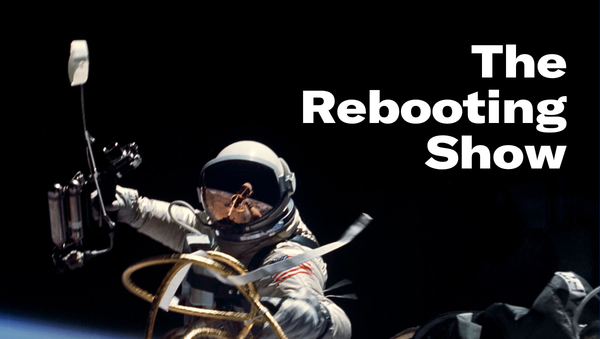The new SERP
Plus: Highlights from The Rebooting's 2023 and a conversation with House of Kaizen's Matt Cronin on publisher subscription trends.

This is the last newsletter of the year for me. Thanks so much for reading. Rather than recount the most popular posts or my favorite ones, I figured I'd give a business update. 2023 was year three of The Rebooting. Progress is always uneven, but a lot became clearer about the business. Some highlights:
- Subscribers grew 55% percent to 19,500
- Worked with 21 partners on sponsorship programs
- Held two custom events at CES and Cannes
- Started The Rebooting Dinner Series, held six dinners
- Executed two research projects that produced 1,400 leads
- Doubled revenue and profits
There are too many misses to list, but the biggest challenge of this kind of model is focus because trying to do so many different things at once requires a lot of context switching and rewards resilience. A lot of what Packy McCormick wrote about his year resonated. It’s easy and natural to focus on shortcomings and lose sight of progress that’s always incremental. My big lessons on the business front:
- This isn’t a newsletter-only business. Writing and podcasting is the heart of the business, but ultimately you need to solve problems for clients, particularly in lead generation and connecting them to prospects, and that means doing more than selling newsletter ad slots.
- You can’t outsource sales. I see a discomfort of many from the content/editorial side to do sales. Tough luck. You need to understand your clients and nobody other than you will be able to sell as well and, for better or worse, you are the product.
- Marketing is a revenue function. In B2B, you have to understand the motivations and mind of the CRO to succeed. The more-with-less era means producing quantifiable results.
- Discomfort is a feature, not a bug. Any part of media is a hard business, and if you’re not willing to do things that stretch you, you’ll stagnate.
- You get a lot of credit for showing up. I published 116 editions of this newsletter this year and 102 podcast episodes across The Rebooting Show and People vs Algorithms. People won’t read or listen to everything, but consistency will get you farther than you might think.
In 2024, my goal is to build my conception of a publishing business that’s made for a more-with-less era but is also sustainable not just in terms of profits but also in workload. Nobody can do everything. Some priorities for 2024:
- Move to a new platform that better fits how The Rebooting has evolved.
- Add collaborators in areas like client management, events operations, production and growth, and in new content verticals.
- Hold more events, starting with our dinner at CES with Outbrain and Adelaide (get in touch if you’ll be there).
- Start a membership program that’s a mix of exclusive content and in-person gatherings.
- Hold online forums, starting with one in late January focused on subscriptions.
- Focus more on the buy-side of digital media because many of the changes needed to create a sustainable, equitable and resilient media ecosystem need to start there.
We will also do more research. Thanks to BlueConic for underwriting one of our first research reports looking at the state of publisher subscriptions – and to the 200-plus publishers who participated. Get the report here.
The new SERP
Of all the tumultuous changes to digital media this year, the waning power of the search engine results page might loom largest. The direction of generative AI search is clear: It will be used to answer queries directly and largely bring to an end the long, fruitful era of 10 blue links, the name given the familiar Google results page that became the hub of distribution of the open internet.
Over the years, the SERP has changed as Google has prioritized its own services, kneecapping rivals, and taken an, ahem, expansive view of fair use by displaying snippets that obviate the need for people to click. Change happens suddenly, then all at once.




